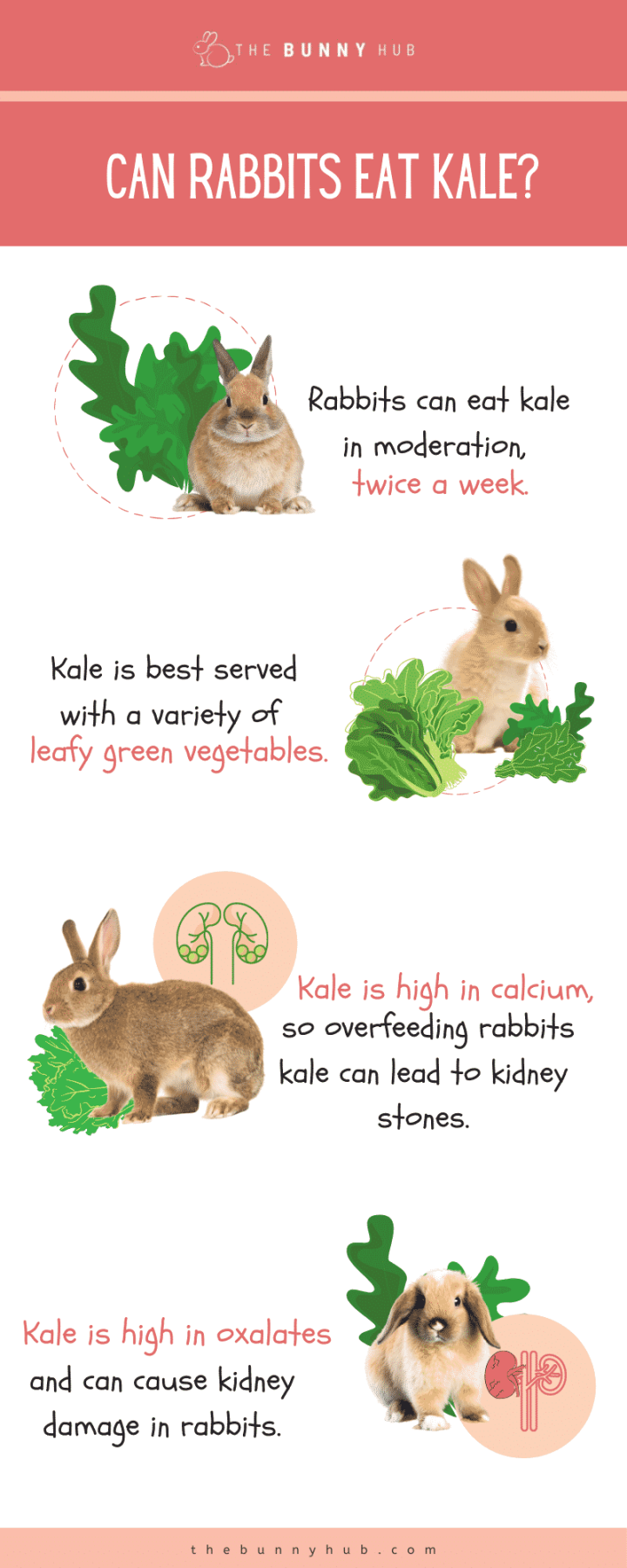Is Kale Good For Rabbits?
Rabbits are herbivorous animals and their diet primarily consists of hay, fresh vegetables, and a small amount of pellets. When it comes to choosing the right vegetables for your furry friend, kale often comes into consideration. Kale is a leafy green vegetable that is known for its high nutritional value and health benefits for humans. But is kale good for rabbits? Let’s find out.

Nutritional Value of Kale
Kale is packed with essential nutrients that can be beneficial for rabbits. It is a great source of vitamin A, vitamin C, vitamin K, calcium, and fiber. These nutrients play a crucial role in maintaining the overall health and well-being of rabbits.
Potential Benefits of Kale for Rabbits
While kale can be a healthy addition to a rabbit’s diet, it should be fed in moderation. Here are some potential benefits of kale for rabbits:
- Kale contains high amounts of vitamin A, which is important for maintaining healthy vision, immune function, and reproductive health in rabbits.
- The vitamin C content in kale helps support the immune system and promotes overall well-being.
- Kale is a good source of fiber, which aids in proper digestion and prevents gastrointestinal issues in rabbits.
- The calcium in kale contributes to maintaining strong bones and teeth in rabbits.
Caution: Oxalates in Kale
Despite its nutritional benefits, kale contains oxalates which can be harmful to rabbits if consumed in large quantities. Oxalates can interfere with calcium absorption and lead to the formation of calcium oxalate crystals in the urinary tract, potentially causing bladder stones or other urinary issues.
How to Feed Kale to Rabbits?
If you decide to introduce kale into your rabbit’s diet, it is important to do so gradually and in moderation. Here are some guidelines to follow:
- Start by offering small amounts of kale, such as a few leaves, and observe your rabbit’s reaction.
- If your rabbit shows no adverse effects, you can gradually increase the amount of kale over time.
- Make sure to thoroughly wash the kale before feeding it to your rabbit to remove any pesticides or dirt.
- Remove any uneaten kale from the cage after a few hours to avoid spoilage.
FAQs about Kale for Rabbits
1. Can rabbits eat kale every day?
No, rabbits should not consume kale every day. It is recommended to offer kale as an occasional treat rather than a daily staple. A varied diet that includes a mix of hay, fresh vegetables, and pellets is essential for a rabbit’s wellbeing.
2. Can kale cause digestive issues in rabbits?
Kale, if fed in excessive amounts, can cause digestive issues in rabbits due to its high fiber content. It is important to introduce kale gradually and monitor your rabbit’s response to avoid any gastrointestinal problems.
3. Are there any alternative vegetables to kale for rabbits?
Yes, there are several other vegetables that can be included in a rabbit’s diet. Some suitable options include romaine lettuce, spinach, cilantro, parsley, and carrot tops. Remember to introduce new vegetables slowly to ensure your rabbit tolerates them well.
4. Are there any signs of kale intolerance in rabbits?
Just like humans, rabbits can have individual food sensitivities or intolerances. Some signs that your rabbit may be intolerant to kale include diarrhea, bloating, gas, or a decrease in appetite. If you notice any of these symptoms, it is best to consult a veterinarian for further guidance.
In conclusion, kale can be a healthy addition to a rabbit’s diet when fed in moderation. It provides essential nutrients that contribute to their overall health and wellbeing. However, due to the presence of oxalates, kale should be offered sparingly and not as a daily food. Always monitor your rabbit’s response and consult a veterinarian if you have any concerns about their diet.
Related Articles…
Copyright Notice:
All images on this website are obtained from the internet and remain copyrighted to their original owners. If you hold copyright to any image and want it taken down, please reach us.